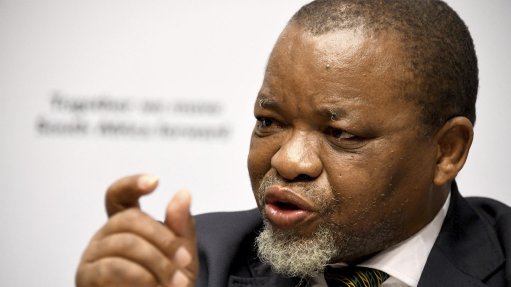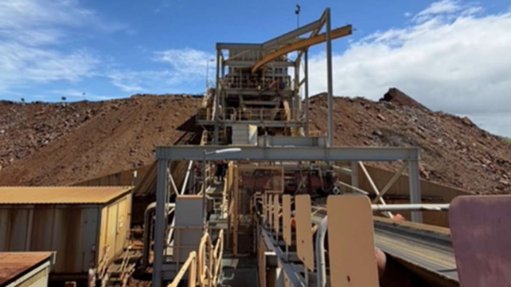Oil and gas can benefit S Africa, deserves consideration


PATIENCE PANASHE Offshore exploration requires clarity and stability on the legal, governance, regulatory and fiscal frameworks for the oil and gas sector
With about 27-billion barrels of prospective oil and gas resources on its south, west and east coasts, as well as more than 5.6-trillion cubic metres of prospective shale gas resources onshore, South Africa’s oil and gas resources could help meet the country’s growing energy demand.
Research and strategy firm Birguid senior consultant Patience Panashe explains that energy demand is expected to increase by 30% by 2040, adding that harvesting oil and gas resources can help reduce South Africa’s dependence on imported crude oil and petroleum products, which costs about $9.6-billion a year.
Developing offshore gas discoveries and exploring onshore shale gas resources can boost the country’s energy security, economic growth and environmental sustainability, argues Panashe.
“Developing the offshore gas discoveries could also create opportunities for skills development, job creation and industrialisation in various sectors such as power generation, petrochemicals, transportation and manufacturing.”
She adds that developing the oil and gas industry in South Africa could also contribute to its transformation agenda by promoting local content, black economic empowerment and social responsibility.
Government has introduced various policies and regulations to ensure that the industry benefits local communities and businesses, such as the Broad-Based Black Economic Empowerment (BBBEE) Act, the Petroleum Resources Development Act (PRDA) and the Upstream Petroleum Resources Development Bill.
These pieces of legislation aim to increase the participation of historically disadvantaged groups in the ownership, management and procurement associated with the oil and gas sector, as well as ensure that the industry contributes to social development and environmental protection.
Offshore exploration can allow for a localised supply of oil and gas to reduce a host country’s dependence on imports, create jobs and revenue, as well as diversify the energy mix.
Panashe states that offshore exploration also faces several challenges, such as high costs, elevated environmental risks, regulatory uncertainty and market competition, which could affect the feasibility of offshore exploration in the domestic sector.
“Offshore exploration requires significant investments, particularly in South Africa’s deepwater offshore environment, where a single exploration campaign can cost over $150-million. To achieve 30 exploration wells in the next ten years, investments in the range of $3-billion to $5-billion are needed. Given that exploration success rates are below 15%, investors see these opportunities as risky.”
She adds that offshore exploration also poses potential environmental threats – such as oil spills, seismic noise, water pollution, habitat degradation and climate change impacts – to the marine ecosystem and biodiversity, which could also affect fishing, tourism and conservation.
Moreover, Panashe argues that offshore exploration requires clarity and stability on the legal, governance, regulatory and fiscal framework for the oil and gas sector, noting that South Africa has not yet finalised its new Upstream Petroleum Resources Development Bill, which aims to provide a clear regulatory regime for the sector.
“The delay in passing the legislation could affect investor confidence and project timelines.”
Offshore exploration also faces competition from other regions and sources of energy that offer lower costs, higher returns or lower emissions. For example, the offshore gas discoveries in Mozambique could compete with South Africa’s gas market.
Meanwhile, the global energy transition towards cleaner and renewable-energy sources could also reduce the demand and price for oil and gas in the long term.
“Offshore exploration in South Africa’s oil and gas sector is important, but challenging. It requires a balanced approach that considers the economic benefits, environmental impacts, regulatory clarity and market dynamics. It also requires collaboration among various stakeholders, such as government, the private sector, civil society and academia,” Panashe concludes.
Article Enquiry
Email Article
Save Article
Feedback
To advertise email advertising@creamermedia.co.za or click here
Announcements
What's On
Subscribe to improve your user experience...
Option 1 (equivalent of R125 a month):
Receive a weekly copy of Creamer Media's Engineering News & Mining Weekly magazine
(print copy for those in South Africa and e-magazine for those outside of South Africa)
Receive daily email newsletters
Access to full search results
Access archive of magazine back copies
Access to Projects in Progress
Access to ONE Research Report of your choice in PDF format
Option 2 (equivalent of R375 a month):
All benefits from Option 1
PLUS
Access to Creamer Media's Research Channel Africa for ALL Research Reports, in PDF format, on various industrial and mining sectors
including Electricity; Water; Energy Transition; Hydrogen; Roads, Rail and Ports; Coal; Gold; Platinum; Battery Metals; etc.
Already a subscriber?
Forgotten your password?
Receive weekly copy of Creamer Media's Engineering News & Mining Weekly magazine (print copy for those in South Africa and e-magazine for those outside of South Africa)
➕
Recieve daily email newsletters
➕
Access to full search results
➕
Access archive of magazine back copies
➕
Access to Projects in Progress
➕
Access to ONE Research Report of your choice in PDF format
RESEARCH CHANNEL AFRICA
R4500 (equivalent of R375 a month)
SUBSCRIBEAll benefits from Option 1
➕
Access to Creamer Media's Research Channel Africa for ALL Research Reports on various industrial and mining sectors, in PDF format, including on:
Electricity
➕
Water
➕
Energy Transition
➕
Hydrogen
➕
Roads, Rail and Ports
➕
Coal
➕
Gold
➕
Platinum
➕
Battery Metals
➕
etc.
Receive all benefits from Option 1 or Option 2 delivered to numerous people at your company
➕
Multiple User names and Passwords for simultaneous log-ins
➕
Intranet integration access to all in your organisation



















